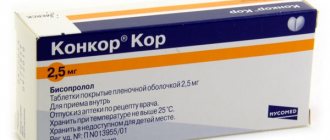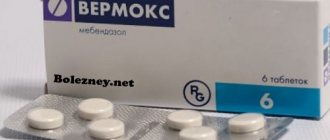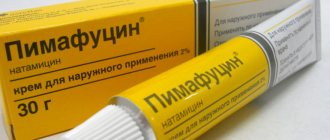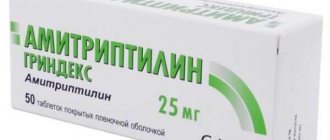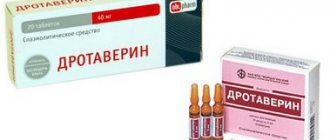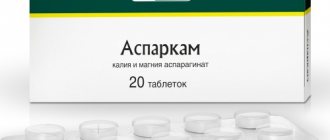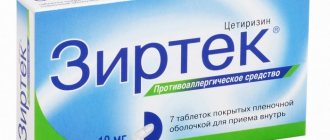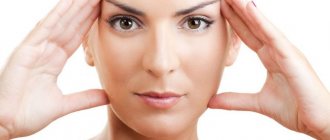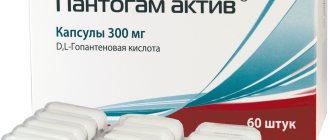- Efficacy and impact of the drug
- Indications
- How to take the drug correctly?
- Contraindications
- Side effects
- special instructions
- Opinion of patients and doctors about the drug
- Where to buy, analogues, price
The medical drug "Bisoprolol" is one of the highly effective drugs that help with tachycardia and high blood pressure. Its effectiveness has been proven in clinical trials. If you have heart palpitations, it is recommended to take this medicine.
Indications for use
The main therapeutic areas where this drug is used are:
- treatment of hypertension of varying severity;
- ischemic manifestations in the work of the myocardium;
- as a preventative against painful sensations in the heart.
Effect on blood pressure
Bisoprolol is a beta-adrenergic blocker. The effect of this drug is selective; it blocks only certain receptors.
This pharmacological drug has a direct effect on receptors located in the muscle cells of the myocardium. As a result, the susceptibility to the hormone adrenaline is reduced and the following effect is achieved:
- the frequency of contractions of the heart muscles decreases, which reduces the amount of oxygen consumed by cells;
- blood vessels become less susceptible to the action of adrenaline, as a result of which the vascular lumen expands and, as a consequence, a decrease in blood pressure.
After taking the medicine, almost 95% of the active component is absorbed into the blood through the villi of the small intestine. Also, this drug is easily removed from the body through the excretory system with urine.
Package
The drug Bisoprolol is a selective beta1-blocker without internal sympathomimetic activity and does not have membrane stabilizing activity.
Reduces plasma renin activity, reduces myocardial oxygen demand, reduces heart rate (at rest and during exercise) and cardiac output, while stroke volume does not decrease significantly. Inhibits AV conduction. Has antianginal and hypotensive effects.
In high doses (200 mg or more) it can cause blockade of β2-adrenergic receptors, mainly in the bronchi and vascular smooth muscles.
The hypotensive effect is associated with a decrease in minute blood volume, sympathetic stimulation of peripheral vessels, a decrease in the activity of the renin-angiotensin system (of greater importance for patients with initial hypersecretion of renin), restoration of sensitivity in response to a decrease in blood pressure and an effect on the central nervous system.
The antianginal effect is due to a decrease in myocardial oxygen demand as a result of a decrease in heart rate and decreased contractility, prolongation of diastole, and improved myocardial perfusion.
The antiarrhythmic effect is due to the elimination of arrhythmogenic factors (tachycardia, increased activity of the sympathetic nervous system, increased cAMP content, arterial hypertension), a decrease in the rate of spontaneous excitation of sinus and ectopic pacemakers and a slowdown in AV conduction (mainly in the antegrade and, to a lesser extent, in the retrograde directions via the AV node) and along additional paths.
Pharmacokinetics
Absorption – 80-90%, food intake does not affect absorption.
Cmax in blood plasma is achieved after 2-4 hours. Plasma protein binding is 26-33%. Bisoprolol penetrates to a small extent through the BBB and the placental barrier; excreted in breast milk.
Metabolized in the liver.
T1/2 – 9-12 hours. Excreted by the kidneys – 50% unchanged, less than 2% – with bile.
Compound
The tablet contains:
- active ingredients that directly affect the body;
- additional components that create the volume of the tablet;
- substances that make up the tablet coating.
The active ingredient is bisoprolol fumarate, which can be contained in tablets in quantities of 5 and 10 mg.
Additional Ingredients:
- primellose;
- povidone;
- starch;
- silicon oxide;
- talc;
- cellulose;
- milk sugar;
- Magnesium stearate.
The tablet shell consists of:
- polyvinyl alcohol;
- talc;
- titanium dioxide;
- macrogol;
- food coloring.
"Bisoprolol" for blood pressure
Have you been struggling with HYPERTENSION for many years without success?
Head of the Institute: “You will be amazed at how easy it is to cure hypertension by taking it every day.
"Bisoprolol" is a pill for hypertension that lowers blood pressure by reducing the heart rate. The drug is often used to prevent pathologies of the cardiovascular system, as it has a depressing effect on parts of the somatic nervous system, preventing the development of arrhythmia.
Therapeutic effect of tablets for hypertension
After taking the tablet, the active substance is 80–90% absorbed by the body, regardless of food intake. Once in the blood, bisoprolol fumarate begins to affect the body:
- reduces plasma renin activity;
- under the influence of the drug, the need for oxygen in the heart muscle decreases;
- reduces heart rate;
- AV conduction is inhibited;
- symptoms of ischemia are eliminated.
Bisoprolol lowers blood pressure due to its complex effect on the heart muscle and cardiovascular system. The maximum concentration of the active substance in the blood plasma is achieved 1–3 hours after taking the tablet.
Composition and release form of the drug
"Bisoprolol" are blood pressure tablets coated with a thin film coating. The medicine is produced in packages of 10 to 100 capsules in each of them. The main active ingredient of the drug is bisoprolol fumarate. Its content in one tablet is 2.5, 5 or 10 mg. There are also auxiliary (inactive) components:
- colloidal silicon dioxide;
- cellulose;
- corn starch;
- Magnesium stearate.
The thin film shell of the tablets is made from titanium dioxide, talc, and food coloring. The color of the capsules varies from light beige to a delicate yellowish-brown shade.
Instructions for use
Instructions for use recommend taking Biseprolol tablets for hypertension. In addition to this main indication, cardiologists prescribe the drug for:
- stable angina;
- chronic heart failure;
- heart rhythm disturbances;
- decreased conductivity of electrical stimulation to the heart.
The use of Bisoprolol must be long-term in order to have a sufficient therapeutic effect. You should not suddenly stop using the medicine.
Contraindications for use
All medications have contraindications for use. Bisoprolol should not be taken if:
- attacks of angina or sudden disturbance of heart rhythm. If there are no other contraindications, the use of Bisoprolol is resumed after the patient’s condition has stabilized;
- do not prescribe medicine for low blood pressure;
- bradycardia;
- sinoarterial and/or atrioventricular block;
- weak sinus node;
- the patient’s body’s tendency to bronchospasm (due to individual intolerance to the components of the drug, asthma, emphysema);
- disorders of circulatory processes.
There are also relative contraindications for use in the following pathologies:
- impairment of kidney and liver function;
- diabetes;
- period of pregnancy and lactation.
At the beginning of the course of treatment, Bisoprolol reduces the patient's ability to concentrate. Therefore, in the first 2 weeks after starting to take the pills, it is recommended to refrain from driving a car or using machinery that requires special precision.
Symptoms of drug overdose
The cardiologist prescribes the dosage and regimen for taking Bisoprolol. If you ignore your doctor's recommendations and take too many tablets, symptoms of a drug overdose may appear. It's easy to recognize them:
- bradycardia (slow heart rate). It appears regardless of the pressure at which the drug was taken;
- a sharp decrease in blood pressure;
- arrhythmia (unstable pulse);
- exacerbation of heart failure;
- change in color of nails, fingers of the lower and upper extremities;
- labored breathing;
- convulsive spasms of muscle tissue;
- dizziness, sometimes fainting.
At the first symptoms of a drug overdose, the patient should take activated charcoal and call an ambulance (go to the hospital for gastric lavage). If Bisoprolol at low pressure caused worsening of hypotension, the patient should lie down so that the head is lower than the level of the lower extremities. This will help stimulate blood circulation in the brain. To normalize blood pressure and stop its decline, doctors use Dopamine and Epinephrine injections (if there are no contraindications to the use of these medications).
Possible adverse reactions of the body
Treatment with tablets of this group is long-term, so patients wonder whether Bisoprolol can cause side effects. Compared to other antihypertensive drugs, these capsules do not cause many uncomfortable symptoms. In most cases, adverse reactions are observed at high dosages of the active substance (from 10 mg). The most frequently recorded reactions of the body are:
- disturbances in heart rhythm and blood circulation in the extremities, symptoms of chronic failure of the myocardial muscle appear;
- migraine, dizziness, in rare cases, loss of consciousness;
- loss of strength, rapid fatigue even from light work;
- sleep disturbance (insomnia, nightmares, sometimes hallucinations);
- there is a decrease in hearing acuity, a feeling of dry eyes due to a decrease in the reproductive capacity of tear fluid;
- disruption of the digestive system - constipation or, conversely, diarrhea;
- muscle cramps and muscle weakness sometimes appear;
- in case of individual intolerance to the components of the drug, local allergic reactions appear in the form of rash, skin itching, redness, exacerbation of the clinical picture of psoriasis;
- In men, potency and libido decrease.
Can Bisoprolol influence the results of clinical studies of biological material? Cardiologists confirm that due to taking the drug, there is a disturbance in the lipid profile, an increase in the levels of ALT and AST in the blood serum.
Special instructions for use
Bisoprorol for high blood pressure should be taken with extreme caution by people with chronic concomitant pathologies. The patient must be constantly monitored by a cardiologist, measure blood pressure, periodically undergo an ECG, and monitor the condition of the kidneys and liver.
Our readers successfully use ReCardio to treat hypertension. Seeing how popular this product is, we decided to bring it to your attention. Read more here...
Tablets should be taken with caution by people with:
- psoriasis (the active components of the drug exacerbate the development of the disease). People whose relatives have been diagnosed with this dermatological disease are under constant surveillance;
- diabetes mellitus of the first and second degree.
During pregnancy, a medicine is prescribed only if the potential benefit to the expectant mother is greater than the risk to the fetus. For example, doctors recommend taking these pills during a woman's critical condition. Today there are clinical results confirming the theory of whether the drug reduces the natural development of the embryo, provokes premature birth or miscarriage (if treated in the first trimester of pregnancy). After birth, the baby will be examined because the medication may cause a slow heart rate.
Interaction of the drug with other drugs
With high blood pressure, simultaneous use of this medicine with drugs that lower blood pressure enhances their effect. Take with extreme caution:
- insulin or pills that lower blood sugar. The drug bisoprolol fumarate enhances their effect, but at the same time suppresses the main symptoms of hypoglycemia;
- if an operation is to be performed, the anesthesiologist should know about taking these tablets, because their active substance, together with anesthesia, impairs the functioning of the heart muscle;
- It is strictly contraindicated to take Floctofenin and Sultopride simultaneously with tablets;
- Clonidine is prescribed only after complete completion of the course of bisoprolol fumarate. Especially if the patient has high blood pressure. The simultaneous use of these drugs causes an exacerbation of hypertension;
- Taking symptomatic medications (drops for a runny nose, cough syrup) weakens the effect of bisoprolol fumarate on the body.
The medicine is incompatible with MAO inhibitors. However, it can be taken together with MAO-B inhibitors.
Drug analogues
The drug is available only with a doctor's prescription. Analogs of the product are conditionally divided into two groups (according to composition and principle of action). Structural replicas of the drug include:
According to the mechanism of action on the body, analogues of the drug are Estekor, Atenolol, Kordanum. All of them are available with a doctor's prescription.
Instructions for use
For therapeutic purposes, this drug must be taken in the morning, on an empty stomach. At the initial stages of treatment, the dosage of the active substance should not exceed 5 mg. Then, if necessary, the dosage is increased. A maximum of 20 mg of Bisoprolol can be taken per day.
Attention! The dosage of the drug and the duration of treatment are determined only by a specialist.
Cancellation of the drug Bisoprolol: features
From the heart
If it is chronic heart failure, then for initial use it is recommended to take pills with a concentration of 2.5 mg.
Bisoprolol, what is the maximum period of use:
- This concentration is taken only in the first 7 days; from days 7 to 14, the concentration of the substance doubles. From days 14 to 21, the concentration of the substance should be 3.75. And from 4 to 8 weeks take 5 mg.
- It is possible to increase the dose to 7.5 mg. After week 12, the maximum concentration prescribed is 10 mg. In general, the doctor regulates the concentration, depending on the characteristics of the disease and the presence of contraindications.
- This slow increase in concentration is necessary to get the body used to the substance and to minimize side effects. That is, the maximum daily dose is 10 mg.
We suggest you read: What alcoholic drinks can you drink if you have kidney stones?
drug
This is a drug that should not be stopped abruptly.
Cancellation of Bisoprolol:
- It is usually prescribed not immediately at the maximum dosage, but with a gradual increase in it. That is, the minimum dose is immediately prescribed, gradually increasing it.
- Likewise, it is necessary to reduce the dosage until you stop taking the pills.
- Withdrawal can cause a large number of side effects that lead to health problems.
- Very effective pills that are widely used in cardiology. Prescribed by doctors, both in the hospital and on an outpatient basis.
There are not only contraindications, but also some restrictions on use.
The drug Bisoprolol - reviews from cardiologists, features of administration:
- When treating patients with diabetes, it is also necessary to pay attention to glucose fluctuations
- During a strict diet, the drug is prescribed with caution
- Treatment of patients with acidosis requires blood monitoring
- Treatment of patients with a history of severe sensitivity reactions requires additional investigations and blood tests
- Thyrotoxicosis, with 1st degree blockade and with angina pectoris, the medicine is prescribed only in the hospital
- If the patient has relatives who suffered from psoriasis, that is, psoriasis, then the use of this medicine is not permissible, or is used only when the benefit is many times greater than the likelihood of side effects
Bisoprolol
Doctors now have a large selection of drugs to prescribe to patients. At the same time, it evaluates the level of benefit and harm to the body of a particular patient. Otherwise, all patients would receive the same drug.
Pills
You should not take the drug without a doctor's prescription. This is not the safest medicine.
special instructions
In some cases, treatment with Bisporolol should be carried out with special attention and caution.
- In the first stages of treatment, it is necessary to monitor blood pressure levels. This should be done daily, some time after taking the drug.
- The drug should be taken with caution if the respiratory system is impaired. If the condition worsens, immediately stop taking the drug and seek medical help.
- Wearing contact lenses while taking Bisoprolol may cause discomfort. Therefore, the use of special eye moisturizing drops is recommended.
- It is necessary to stop taking the drug gradually, because with a sharp refusal, an increase in negative manifestations may occur.
- In the presence of chronic pathologies of the liver and kidneys, the maximum daily dosage of the drug should not exceed 10 mg.
Who prescribes bisoprolol
Uncontrolled use of the product can lead to serious health problems. Only the doctor should decide why bisoprolol should be prescribed. The therapist or cardiologist will refer you for the necessary examination, determine the indications, exclude contraindications and select an individual dosage of the drug. In many cases, they start with a minimum dose of bisoprolol, slowly increasing it to a level that provides maximum therapeutic effect and is well tolerated by the patient.
Beta blockers are often used in the treatment of heart disease, but their use may be limited by existing contraindications, individual intolerance, and undesirability of combination with individual drugs.
Despite the selectivity of bisoprolol, large doses of the drug can lead to blockade of beta-2 adrenergic receptors with undesirable effects, in particular bronchospasm and peripheral circulatory disorders. Therefore, the prescribed drug should be taken under the supervision of a doctor, who, if necessary, will adjust the dose of bisoprolol or discontinue the drug. Discontinuation of the drug is carried out with caution, gradually reducing the dose due to the possibility of withdrawal syndrome.
Consultation
Hello, I have hypertension, moderate thyrotoxicosis, hepatosplenomegaly, atherosclerosis of the abdominal aorta, I treat thyrotoxicosis with tyrosol 5 mg per day, hypertension with bisoprolol 5 mg plus Prestarium 5 mg. I have been treating hypertension for more than 5 years, thyrotoxicosis for about 2 years (I don’t want to have surgery on the thyroid gland or radioiodine). Unexpectedly this week I noticed in the morning that my pulse had dropped to 44, I measured it with a device for measuring pressure to pulse. In addition, the heart beat strongly and unevenly. I called an ambulance. It turned out that these were extrasystoles that accompanied each beat, ventricular and some other beats. At the hospital they put me on a drip with cordarone and potassium, and the extrasystole disappeared. The doctor said to take Condoron 200 mg or bisoprolol 5 mg before seeing a cardiologist at the clinic. The cardiologist will see you only on Tuesday in 4 days. According to Condoron, I have a contraindication for thyrotoxicosis, so I won’t take it. I took bisoprolol 5 mg in the morning, my pulse dropped to 44 from 82 beats before use. So I don’t know what to do these 4 days, with a pulse of 44, my legs are heavy, nausea, the urge to defecate. Reduce the dose of bisoprolol to 2.5 mg per day? Will estrasystole appear again? Or change bisoprolol to nebivolol strada, are there 5 mg tablets? When should you call an ambulance when your heart rate drops? And how to raise the pulse? Blood pressure ranges from 149 to 56 to 172 to 67. I can normally tolerate increased blood pressure. My norm is at the top, somewhere around 135. And should I drink Prestarium, won’t it aggravate the situation with a low pulse and the possibility of recurrence of extrasystoles? Extrasystoles have happened before, but very rarely. Is this normal?
Side effects
Negative manifestations may occur while taking this drug.
Side effects of the nervous system:
- fast fatiguability;
- general weakness of the whole body;
- headaches, migraines, and dizziness;
- sleep disorders;
- impaired concentration;
- psycho-emotional anxiety;
- tremor of the limbs.
Side effects of the senses:
- inflammatory processes on the mucous membrane of the eyes;
- visual and auditory impairment;
- insufficient saliva production.
Side effects of the heart and blood vessels:
- heart rhythm disturbances;
- slowing down the frequency of myocardial contractions;
- increased manifestations of heart failure;
- painful sensations in the heart area.
Side effects of the gastrointestinal tract:
- nausea, which is sometimes accompanied by vomiting;
- stool disorders;
- pain in the abdominal cavity;
- pathologies of the liver and gall bladder;
- violation of taste perception.
Respiratory side effects:
- swelling of the mucous membranes of the nose;
- respiratory failure.
Side effects of the endocrine system:
- increase in blood glucose concentration;
- decrease in blood glucose concentration;
- decreased activity of the thyroid gland.
Side effects on the skin:
- allergic rash;
- hives;
- exacerbation of psoriasis symptoms.
The effectiveness of the drug for high blood pressure
The blood pressure-lowering effect of bisoprolol is mainly due to the following mechanisms:
- decreased cardiac output;
- blocking the release of renin, an enzyme that triggers a cascade of reactions leading to an increase in pressure;
- suppression of impulses from the central part of the sympathetic nervous system, leading to a decrease in stimulation of cardiac activity and a decrease in blood pressure.
Treatment with bisoprolol can eliminate the following symptoms:
- lower blood pressure;
- reduce the severity of symptoms associated with high blood pressure - headache, nausea, fatigue and others.
The choice of bisoprolol as an antihypertensive agent is preferable in the presence of tachycardia, heart failure, coronary artery disease, factors of increased cardiovascular risk, and the threat of arrhythmias.
Contraindications
It is strictly forbidden to take the drug Bisoprolol in the following cases:
- Impaired impulse conduction, which provokes pathologies of the contractility of the heart;
- impaired conduction of impulses from the atrium;
- pathological processes in peripheral circulation;
- left ventricular failure;
- low blood pressure;
- slow heart rate;
- individual allergic reactions to the components of the drug;
- predisposition to the occurrence of spasms in the bronchi.
What's better?
"Bisoprolol" "Metoprolol" (trade name "Egilok") and "Atenolol" are considered equivalent and good medications from the group of adrenergic blockers. They can be replaced with weaker generics, but in this case doctors cannot vouch for the speed of onset and duration of maintenance of the healing result.
Modern pharmacology does not stop developing for a second. New generic drugs appear regularly. It was progress that caused questions to arise, which is better: Bisoprolol or Concor, Piracetam or Nootropil, Maalox or Almagel. This list can be continued endlessly. Surely you also had to deal with a similar problem of choice even during your last trip to the pharmacy. Let us try to clarify the issue regarding the drugs Bisoprolol and Concor.
It is quite difficult to answer this question unambiguously. Especially considering the fact that the main active ingredient of Concor is Bisoprolol. Concor is a drug developed and patented by German pharmacists. And Bisoprolol is a domestic analogue of this medication.
That is, in fact, Concor and Bisoprolol differ only in the manufacturer, and, consequently, in the price. At the same time, the principle of action and effectiveness of medications are at the same level. Despite this, choosing the right medicine can only be done experimentally. As practice has shown, some patients are helped by the more expensive original Concor, while others can trust their health exclusively to domestic Bisoprolol.
The popularity of the products is determined by their complex action. Both drugs have the following effects:
- antianginal;
- hypotensive;
- antiarrhythmic.
Many specialists prescribe Concor or Bisoprolol for preventive purposes.
Like any other medicines, Bisoprolol or Concor are prescribed individually, depending on the disease, the patient’s health condition, his age, and physiological data. In general, according to the instructions for use of Concor Cor (another generic) or Bisoprolol, the patient should take no more than one five-milligram tablet per day. In some cases, increasing the dose is allowed.
The time of taking the drugs does not matter at all - taken before or after a meal, they are equally effective. Substances are removed from the body by both the kidneys and the liver, which in medicine is called balanced clearance. Thanks to this, Bisoprolol and Concor can be taken even by patients suffering from impaired renal and liver function.
Another huge advantage of the drugs is that they are more suitable for older patients than older generation beta blockers. Medicines have a powerful effect, but act gently, causing minimal damage to the body.
Of course, in addition to Bisoprolol, Concor tablets have many other analogues. And they look like this:
- Coronal;
- Biol;
- Biprol;
- Bisogamma;
- Cordinorm;
- Corbis;
- Tirez;
- Aritel;
- Niperten and others.
Concor, Bisoprolol and all of their analogues listed above have contraindications for use:
- The drugs are not recommended for use in acute forms of heart failure.
- Medications can cause harm with bradycardia and sinoatrial block.
- Children under 18 years of age should not take these medications.
- It is also advisable to refrain from taking beta blockers if you have bronchial asthma.
- Another contraindication is cardiogenic shock.
Overdose
If you violate medical instructions for taking this drug, an overdose may occur, which is accompanied by characteristic symptoms:
- disturbance of the rhythm of heart contractions;
- slowing down the frequency of myocardial contractions;
- development of respiratory failure and manifestations of asthmatic symptoms;
- increased symptoms of heart failure.
When diagnosing one or more of the listed symptoms, the victim must immediately provide first aid, which consists of the following steps:
- rinsing the digestive tract;
- taking absorbent agents;
- going to the hospital for observation by specialists.
Interaction with other drugs
While taking Bisoprolol, allergy tests should be carried out with extreme caution. This is due to the fact that the risk of anaphylactic shock in the patient increases significantly. A similar risk occurs when taking Bisoprolol and iodine-containing drugs together.
It is prohibited to use anesthesia in the form of inhalation while taking Bisoprolol. This combination provokes a sharp decrease in pressure in the blood vessels and a pronounced slowdown in heart rate.
Bisoprolol negatively affects the effectiveness of insulin.
It is not recommended to use diuretic drugs and Bisoprolol together. This often causes an excessive drop in blood pressure.
Bisoprolol and sedatives have a depressant effect on the central nervous system.
Ergot alkaloids in combination with Bisoprolol disrupt blood circulation. A similar process occurs in combination with Ergotamine.
The effect of bisoprolol on coronary heart disease
With coronary artery disease, there is a discrepancy between the needs of the heart muscle for oxygen and its supply with the blood through the network of coronary vessels. Bisoprolol does not change the amount of oxygen delivered, but reduces the load on the heart and its need for blood supply. This is achieved through the following mechanisms:
- Bisoprolol reduces heart rate and the duration of the period of relaxation of the heart muscle. The flow of blood to the cells occurs mainly during this period, since when the heart contracts, the coronary arteries in the thickness of the myocardium are compressed.
- A decrease in contraction force and blood pressure reduces the oxygen demand of cardiomyocytes.
- Under the influence of the drug, the pressure in the left ventricle of the heart decreases between contractions, which leads to improved blood supply to the myocardium.
- Blockade of the toxic effects of high concentrations of catecholamines.
The use of bisoprolol for coronary artery disease can reduce the load on the heart and reduce the risk of coronary complications. The drug provides the following positive changes in the condition of patients:
- reduces the frequency of angina attacks;
- increases load tolerance;
- prevents the development of arrhythmias or has a therapeutic effect in case of existing tachycardia or extrasystolic arrhythmia;
- reduces the likelihood of complications - myocardial infarction, sudden coronary death;
- slows the progression of chronic heart failure.
Analogs
Analogues of medicines are:
- structural;
- by mechanism of action.
Structural analogs are drugs that have a similar chemical composition. In relation to Bisoprolol these are:
- Biprol;
- Bisogamma;
- Niperten;
- Bisoprolol Prana;
- Concor;
- Bisomore;
- Bioscard;
- Corbis;
- Bidop;
- Aritel Cor.
Drugs with a similar mechanism of action may differ in their composition, but the effect on the body will be identical. These are drugs such as:
- Atenolol;
- Betacard;
- Betalok;
- Coradnum;
- Metozok;
- Metoprolol;
- Metokor;
- Nebilet;
- Estekor.
Action of the medicine
All drugs based on the name “Sildenafil” have an absolutely identical mechanism of action and composition.
Medicines can normalize erection due to their effect on special enzymes responsible for normal sexual arousal.
While using these pills, a man begins to feel an unusually sharp surge of strength and energy.
As a rule, the drug has an effective effect immediately after administration, because the active components included in its composition are able to be quickly absorbed.
It is worth noting that the drug "Sildenafil Vertex", according to reviews, is able to increase blood flow in the penile area. But if a man has diseases of the cardiovascular system, then the use of this drug will be in vain.
